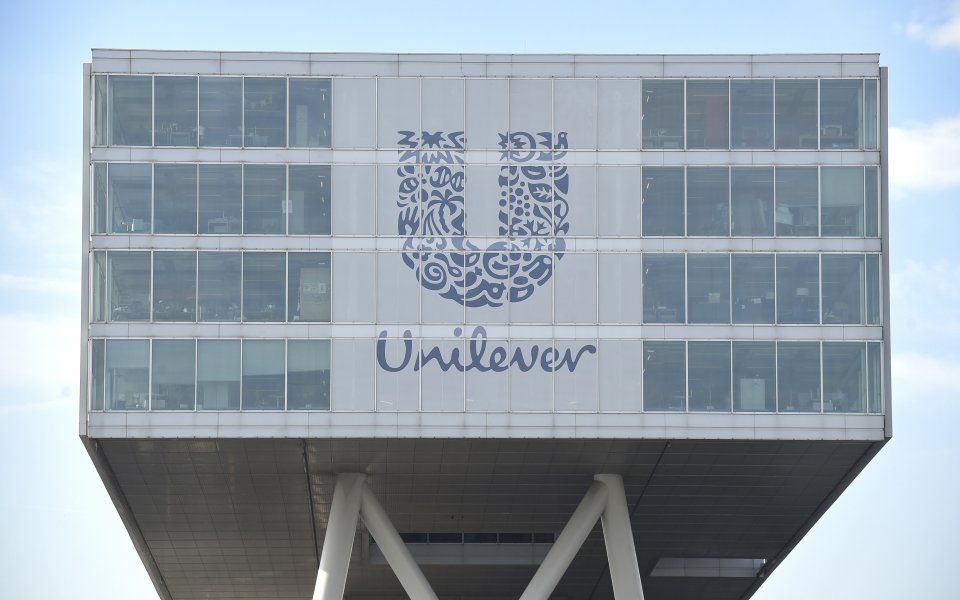Unilever’s board has now lost the Lynx effect with UK investors, a new era for spin city and a hand from above

How ironic that one of the world’s great consumer marketing machines – responsible for brands like Lynx, Persil and Magnum – should be making such a hash of a sales pitch to its own investors.
Unilever’s insistence that it remains “confident” of winning this month’s vote to scrap its British headquarters sounds more strained by the day.
With roughly 11 per cent of shareholders in its London-listed company already declared against Unilever’s board, either it is blind to the evidence unfolding or it has received private assurances of backing from a sufficient quantity of large investors to make the growing noise an irrelevance.
To judge from the behaviour of a board which exudes an unwelcome streak of arrogance – its peremptory dismissal of enquiries about chief executive Paul Polman’s personal tax status, as one example – I suspect the first explanation is more likely.
Unilever’s attempt at legal unification does not qualify as a transaction subject to the scrutiny of the UK’s Takeover Panel; if it did, greater scrutiny might be applied to those repeated assertions of confidence in the outcome.
With every week that passes, fresh evidence emerges of the cursory way in which Unilever seems to have simply assumed that shareholders would simply accede to its wishes. Continued membership of the FTSE 100? An afterthought. Tax implications for institutional shareholders? Their problem, not ours. Treatment of individual investors who may feel disenfranchised? It’s for them to deal with.
People close to Unilever say that Marijn Dekkers, its chairman, and other board members feel bruised by the relentless criticism engulfing the company’s handling of an entirely avoidable crisis.
After all, it insists that the company will be no less committed to Britain after scrapping its HQ here, with two of its three global business units based in the UK and no change to its 7,000-strong workforce.
It’s an argument that doesn’t hold water. Unilever will have no UK headquarters, domicile or primary share listing – it will be hardly more British than Coca-Cola.
Nevertheless, there is sound logic for the campaign being led by Dekkers and Polman. Unification is a legitimate pursuit, and one that, in truth, could have happened years ago. It will simplify the company’s corporate structure, enabling it to pursue paper-based takeovers in a nimbler way.
One fund manager who met with the chairman, though, said he was far from sure-footed when challenged on his assertion that demergers and takeovers were virtually impossible without the restructuring.
As the odds lengthen on Unilever winning the Plc vote (if it goes ahead) later this month, so they shorten on the Anglo-Dutch consumer goods giant being forced to start a search for a new slate of directors.
New era for spin city
Long gone are the days when City public relations firms solely practised the dark art of spinning for corporate clients; now investor relations, crisis management, stakeholder engagement and public affairs all form part of their (dreaded word) holistic communications package.
Another example of this trend: Trelawny Williams, Fidelity International’s long-serving corporate governance chief, is joining Brunswick Group as a senior adviser. Williams’ appointment illustrates the extent to which bread-and-butter governance issues like succession planning, boardroom pay and diversity have risen up the agenda of corporates fearing reputationally damaging public rows.
But it also highlights the fact that with environmental, social and governance issues now a staple feature of institutional shareholders’ engagement with boards, the traditional ability to relegate such concerns to a backwater is a thing of the past.
A hand from above
It’s lonely at the top, as the saying goes. So it’s not surprising that even those on the higher rungs of the UK corporate ladder require a guiding hand on their shoulders (notwithstanding sometimes large and fragile egos). One such mentoring business is J&A Mentoring Partners, founded by the CBI president John Allan and Anna Joseph, a former 3i exec. Established a year ago, J&A now has 12 FTSE-100 companies on its client list, and is adding Deanna Oppenheimer, the Hargreaves Lansdown chair, and DS Smith chair Gareth Davis to its roster of mentors.
With Brexit adding to the complexity of running a major enterprise, more would-be corporate, professional services, charitable and public sector bosses will be searching for that guiding hand.
